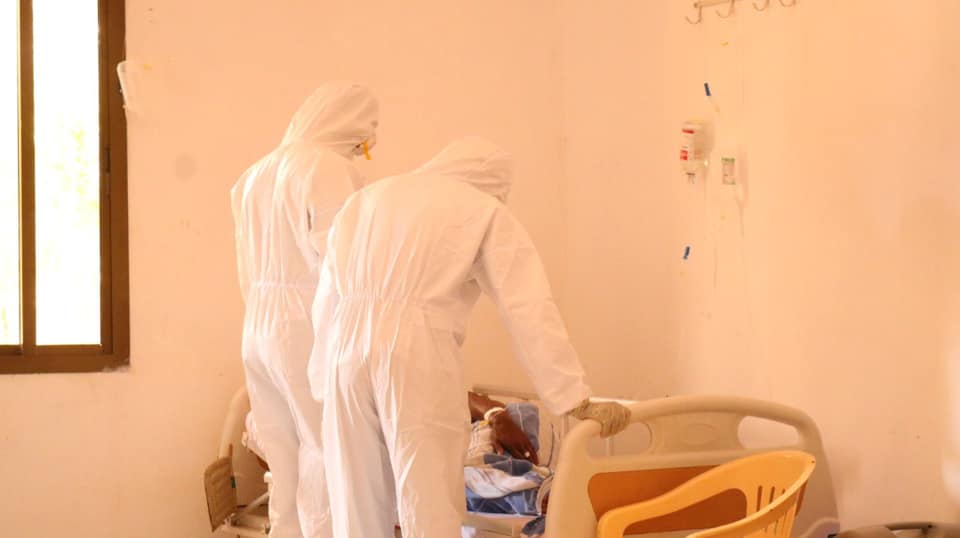
How Covid-19 pandemic disrupts ongoing interventions in Somalia's health sector

MOGADISHU (HORN OBSERVER) Somalia now has the second highest number of confirmed COVID19 in the Horn of Africa region. From 3-14 May, the number rose from 722 to 1,284 with 53 deaths and 135 recoveries, according to the data released by the Ministry of Health on Thursday.
The majority of new cases are being reported in Banadir region, making it the epicentre of the pandemic. However, there are increasing numbers now reported in Somaliland, Puntland, Galmudug, Hirshabelle, South West state and Jubaland. During the week of 2-8 May, four health workers tested positive for COVID-19 in Kismayo General Hospital. As of 12 May, a total of 69 health workers (six per cent of the overall confirmed caseload) have tested positive for COVID-19.
The pandemic threatens to reverse previous gains as well as disrupt ongoing interventions in Somalia’s health sector. On 10 May, WHO1 warned that while it is imperative to fight the coronavirus, essential health services that directly affect health and save lives need to be maintained. According to WHO, unless coronavirus transmission is slowed down quickly, the surge in cases and the increasing demand for care will put such enormous pressure on Somalia’s fragile health system that it may reach breaking point. 2 Moreover, the country is grappling with floods that have affected over 612,000 people. This is further exacerbated by the desert locust infestation, already reported in Somaliland, Puntland and Galmudug; thus, creating a triple threat.
COVID-19 impact
In the last two months, COVID-19 has changed lives and livelihoods across the country. The changes in modes of business and reduction of activities including closure of some markets, hotels and restaurants due to COVID-19 restrictions have impacted daily-wage workers, casual labourers and low-income households. At the same time, the humanitarian footprint in-country has reduced with the majority of UN and NGO staff either in alternate working arrangements outside the country, working in a restrictive environment or operating from home.
Imports and exports have been negatively affected. Port fees and taxes on imports represent a significant portion of income for the Federal Government and member states. According to the World Bank, trade taxes accounted for an average of 69 per cent of domestic revenue over the past six years, representing on average 1.8 per cent of Somalia’s Gross Domestic Product (GDP) 3 . The closure of seaports and land borders for a long period presents significant losses in domestic revenue and contraction of GDP.
WFP reported that the cost of public transport in Puntland has increased by 25 to 35 per cent due to COVID-19 directives that limit numbers of passengers usingpublic transportation. In South West State, trade flow has reportedly been disrupted because truck drivers on Baidoa-Waajid route are withdrawing their services due to fear of contracting COVID-19. In Jubaland, closure of the Kenya-Somalia border has affected trade flow in Ceel Waak town resulting in increased in food prices. In Banadir region, small urban markets, which are usually active in the evening hours, have declined.
On the other hand, fuel prices have declined5 in Somaliland and Puntland States, and in Mogadishu due to a global reduction in oil prices due to COVID-19. On 19 April, Saudi Arabia lifted a recent ban on livestock exports from Somalia6 , leading to increased activity in Mogadishu, Berbera and Bossaso ports.
Source: UNOCHA
Leave a comment
- Popular
- Rated
- Commented
04/11/2021 - 11:05:02
12/03/2023 - 22:58:08
22/01/2023 - 11:24:06
13/12/2015 - 09:27:08
01/03/2021 - 09:00:37
Opinions
17/04/2024 - 22:46:39
08/03/2024 - 02:04:01
Politics
22/04/2024 - 15:18:30
17/04/2024 - 22:46:39
Terror Watch
22/04/2024 - 23:39:45
09/04/2024 - 12:24:06
Press Releases
18/04/2024 - 21:29:03
13/04/2024 - 10:40:06
 0
0 


































How Covid-19 pandemic disrupts ongoing interventions in Somalia's health sector
MOGADISHU (HORN OBSERVER) Somalia now has the second highest number of confirmed COVID19 in the Horn of Africa region. From 3-14 May, the number rose from 722 to 1,284 with 53 deaths and 135 recoveries, according to the data released by the Ministry